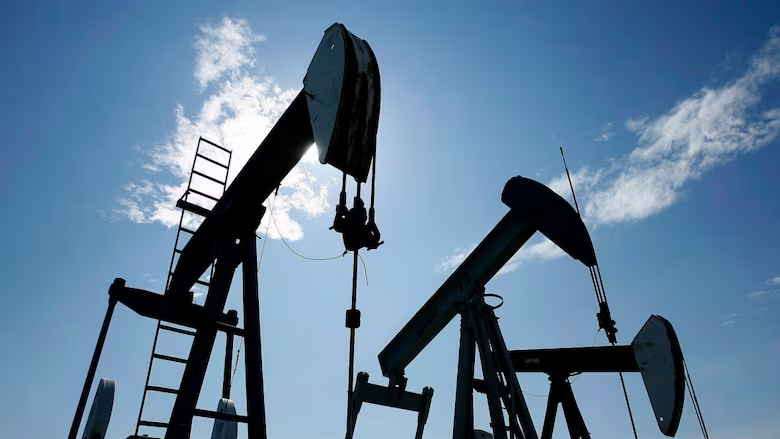Will low oil prices force Ottawa to use reserve to balance budget?
As the government's surplus for 2015-16 gets thinner, it may come down to election-year optics

Experts weighing the threat of low oil prices to the federal government's bottom line are asking themselves a follow-up question: what's to become of Ottawa's contingency reserve?
Many budget watchers believe the cheaper crude will challenge the Conservative government to keep its long-held promise to pull Canada out of the red in 2015-16.
- Low oil prices bode well for Quebec economy, economists say
- Alberta now facing $500M deficit due to dropping oil prices
- PM says falling oil prices won't prevent balanced budget
And the longer oil stays low, the more likely the federal government will have to dip into the country's $3-billion rainy day fund, which was set aside for unforeseen events.
The Harper government has repeatedly maintained it will achieve a balanced budget, despite the low oil prices that indirectly cut into federal revenues. With an election date set for October, the promise will be central to the Conservatives' electoral fortunes.
The contingency is there essentially for this kind of thing- Mostafa Askari, assistant parliamentary budget officer
"I think it really adds to the drama of what's expected to happen in 2015 with an election coming up," said Randall Bartlett, a senior economist with TD Economics.
The government's latest estimate for the 2015-16 election-year budget, announced in November, predicted a $1.6-billion surplus.
That projection had shrunk from $6.4 billion nine months earlier due to new government tax-relief and spending measures, which were followed by the sharp, late-2014 slide in crude prices.
The Finance Department accounted for some of the oil-price drop in its November fiscal and economic update, with Finance Minister Joe Oliver warning it could drain billions of dollars from the federal piggy bank.
The thin surplus was also expected to provide the Conservatives with an advantage, leaving little budgetary residue for political rivals to transform into campaign promises.
Since then, the price of oil has tumbled even further, from about US$80 per barrel to roughly US$50.
Oliver's spokeswoman said the government will provide an update on the fiscal impact of oil prices in the upcoming federal budget, but she noted the cushion is available to address unanticipated circumstances.
The government allocates whatever remains of the contingency reserve at the end of the fiscal year to pay down the federal debt.
"We have a contingency built in for any surprises," said Melissa Lantsman, who added the effect of oil prices could qualify as one of those unexpected scenarios.
'So many unknowns'
In fact, the world is full of economic surprises these days, so much so that last week BMO dropped its 2015 projection for the average price of oil to US$56 per barrel.
"I find it striking how strongly the government has come out to say that they're going to run a surplus this year," said Doug Porter, chief economist for BMO Capital Markets.
"There are so many unknowns at this point, things are moving very rapidly, whether it's oil prices or the Canadian dollar or interest rates. There are a lot of balls in the air right now for the economic outlook.
Mobile users, view a graphic of banks' forecasts here
"When things are changing so quickly, I would personally tend to err on the side of caution in terms of forecasting any economic variable at this point."
Porter believes at least some of the government contingency will be used, leaving only a "very small surplus."
The parliamentary budget office has also been busy crunching numbers to determine the potential fiscal fallout of cheaper crude, though the final figures have yet to be finalized.
"I think it is very clear that if the oil prices remain at the current level, they're going to eat into their contingency reserve next year," said Mostafa Askari, the assistant parliamentary budget officer.
"The contingency is there essentially for this kind of thing."
Does a surplus matter?
He said the calculations, however, don't include the possibility the government could make additional room by delaying capital projects or introducing fresh cuts to federal programs.
"There's some room there, but those are tough, tough political decisions to make," Askari said.
With Canada's finances in decent shape, Askari said the drive for budgetary balance is a political choice.
From an economic perspective, he said it makes little difference whether the country runs a couple of billion dollars into surplus or deficit.
"I know for them it's relevant politically," Askari said.
"But from our point of view, as far as the economy is concerned and the future fiscal prospects are concerned, it's irrelevant. The federal government has a sustainable fiscal situation right now."